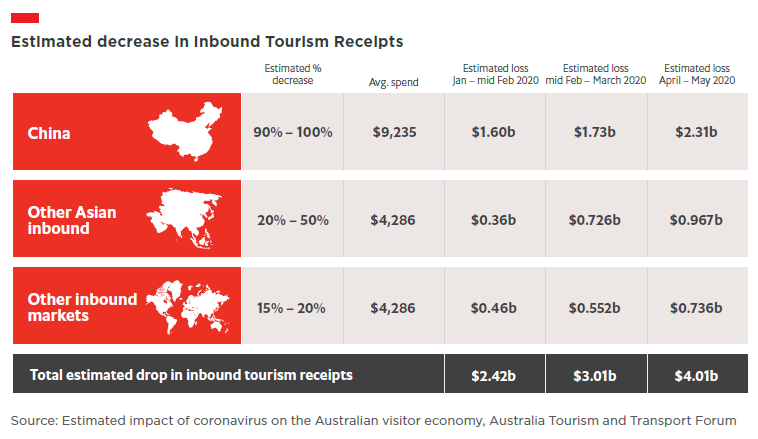Across the globe businesses in the travel and tourism sector have been left reeling from covid-19, and Australia is no exception. Tourism comprised 3.1% of the nation’s GDP—and 8.2% of export earnings—in 2018/2019, with an annual economic value of A$60.8b (US$40.2b).1 With planes grounded, tourist venues shuttered, cruise ships quarantined and all non-essential domestic and international travel banned since the end of March, it is difficult to identify an Australian economic sector more severely impacted by the pandemic. Some are calling covid-19 the most significant crisis in the history of global travel.2
Pent-up demand for travel and tourism is high, although those still dreaming of travel are now looking for less distant destinations according to data compiled by Sojern, an ad-tech firm. Analysis of this data by The Economist shows that the bigger a country’s covid-19 outbreak, the bigger its shift is away from foreign travel.3 At the time of publication, travel restrictions within individual states and territories have been lifted and Australians will now be able to enjoy a holiday—as long as it’s within their own borders. Domestic travel may hold out hope for Australia’s sector as a result, but with interstate travel access still being negotiated the economic fallout and high rates of unemployment are expected to take a toll on the sector long after lockdown measures are eased.

In this interview with The Economist Intelligence Unit, the group chief financial officer of Flight Centre Travel Group Limited, Adam Campbell, answers questions about the unprecedented difficulties caused by covid-19 and whether there is hope on the horizon.








